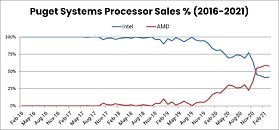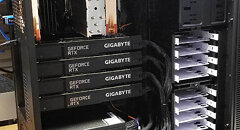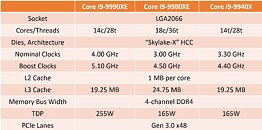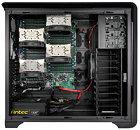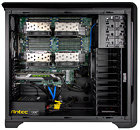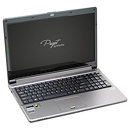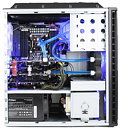
ASUS to Unveil ProArt Displays, PC Solutions, and More at NAB Show 2025
ASUS today announced its participation in the NAB Show 2025. Visitors to the ASUS booth will have the opportunity to experience the future of content creation with live demonstrations of the latest ASUS ProArt offerings. The showcase includes the debut of the ProArt Cinema PQ09 monitor, featuring the largest-ever ASUS microLED display. The ProArt Display 6K PA32QCV and the ProArt CaliContrO MCA02 three-in-one calibrator will also be showcased. Also on show will be the 16-inch ProArt P16, a creative powerhouse laptop equipped with a 50 TOPS NPU, AMD Ryzen AI 9 HX 370 processor, and up to an NVIDIA GeForce RTX 5070 Laptop GPU. In addition, the NAB Show 2025 will feature the latest installment of the ProArt Masters' Talks series, with renowned creatives sharing their perspectives on current trends.
The ProArt Cinema PQ09 is the latest addition to the ProArt Cinema microLED display lineup. This 162-inch 4K HDR monitor features advanced panel technologies, ultrasmall 0.93 mm pixel pitch, 1200nits peak brightness, high 1,000,000:1 contrast ratio, and 97% DCI-P3 color gamut. Compared to conventional microLED displays with a 1.2 or 1.5 mm pixel pitch, ProArt Cinema PQ09 delivers smoother and more vibrant visuals, making it the perfect large-screen display for home cinema, broadcasting or other uses.
The ProArt Cinema PQ09 is the latest addition to the ProArt Cinema microLED display lineup. This 162-inch 4K HDR monitor features advanced panel technologies, ultrasmall 0.93 mm pixel pitch, 1200nits peak brightness, high 1,000,000:1 contrast ratio, and 97% DCI-P3 color gamut. Compared to conventional microLED displays with a 1.2 or 1.5 mm pixel pitch, ProArt Cinema PQ09 delivers smoother and more vibrant visuals, making it the perfect large-screen display for home cinema, broadcasting or other uses.

















